FORT LEONARD WOOD, Mo. (April 23, 2009) -- Two Fort Drum, N.Y., combat engineers walked away with bragging rights as the best in their business as 68 of the Army's top engineers wrapped up the 2009 Best Sapper Competition, an intense 52-hour, six-phase contest.
The team of 1st Lt. Shawn Hogan and Master Sgt. Michael Behkendorf, of Headquarters, 7th Engineer Battalion, 20th Engineer Brigade, beat out 33 other two-person teams to take top honors. The team placed second in last year's contest.
"It feels great! Coming in second last year, we had time to think about what we did wrong, what we could do differently this year and tried some new strategies," said Behkendorf. "They paid off."
In addition to bragging rights for the Fort Drum duo, they also received the Army Commendation Medal, the Bronze Order of the de Fleury Medal and a trophy.
The six events covered more than 40 miles of wooded terrain and started with a nonstandard physical fitness test of five minutes of push-ups, five minutes of sit-ups, and three minutes of pull-ups and ended with a three-mile run in interceptor body armor and small-arms protective-insert plates that began the process of weeding out the teams.
After a helocast and poncho raft swim, the competitors entered the round robin phase faced with challenges that included a stress shoot, timber-cutting charge, counter-force charge, MOUT breach and an urban challenge.
Other events during the competition included a 15-mile road march, and a series of sapper stakes with tests that ranged from weapons and knot identification to patient airlift operations, locating explosive charges, combat-life-saving techniques and an obstacle course.
A land-navigation course and an X-mile run that throws in such obstacles as running with protective mask, log cut and carry, hauling Bangalore crates, an M-15 relay, tire flip, picket pounding, dummy carry and other engineer-related obstacles.
"It wouldn't be an engineer competition if it didn't have technical challenges every step of the way," said Capt. Michael Natalino, the chief of training for the Sapper Leader Course at Fort Leonard Wood. "From demolition calculations to how to build your poncho raft so it doesn't sink, putting all of the different engineer tasks learned throughout a military career into action is part of the strategy."
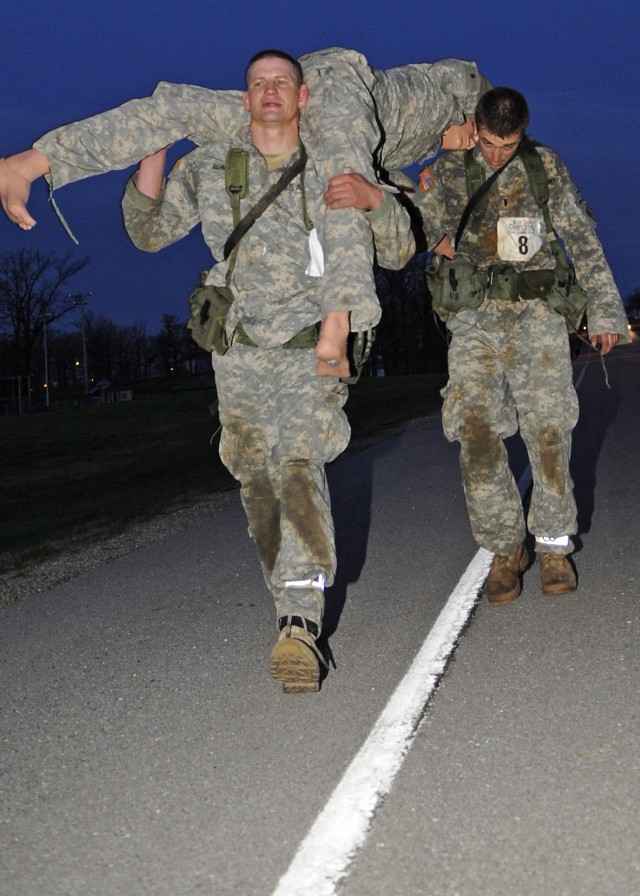
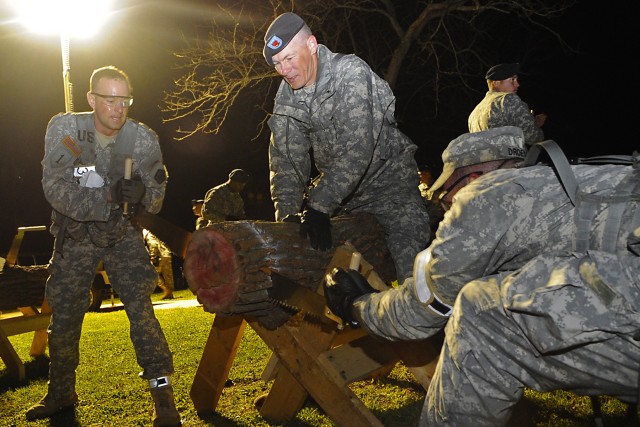
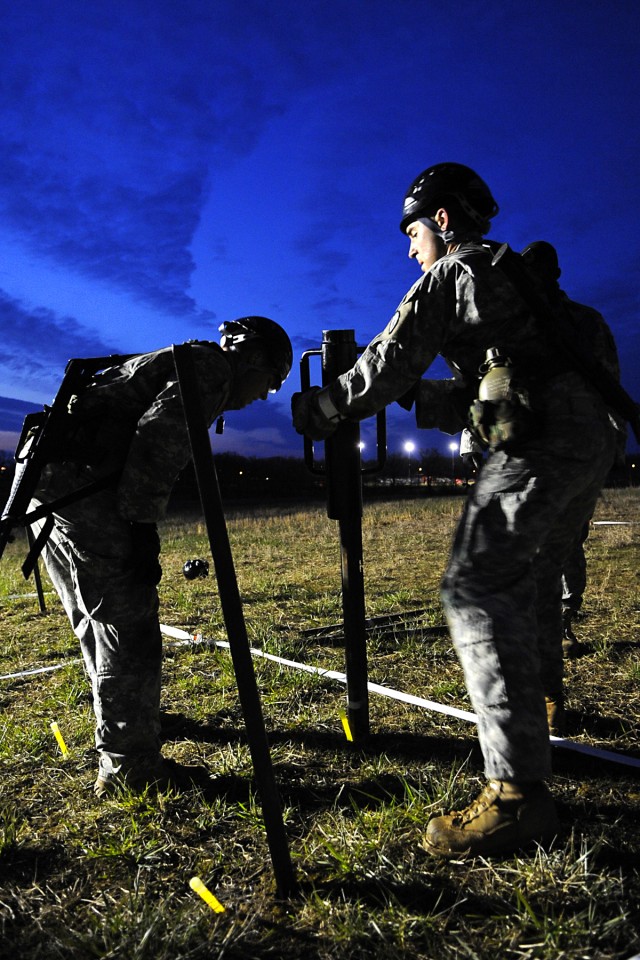
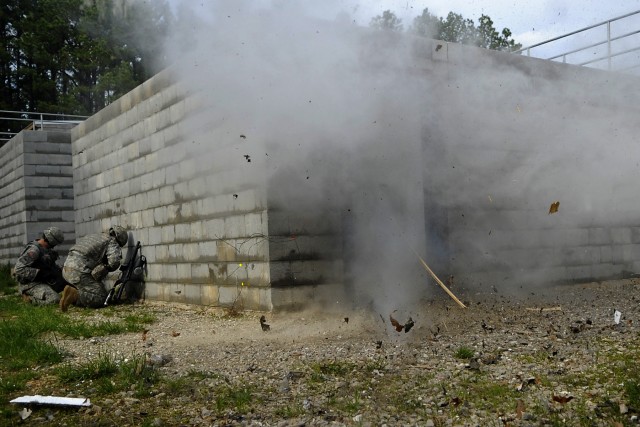
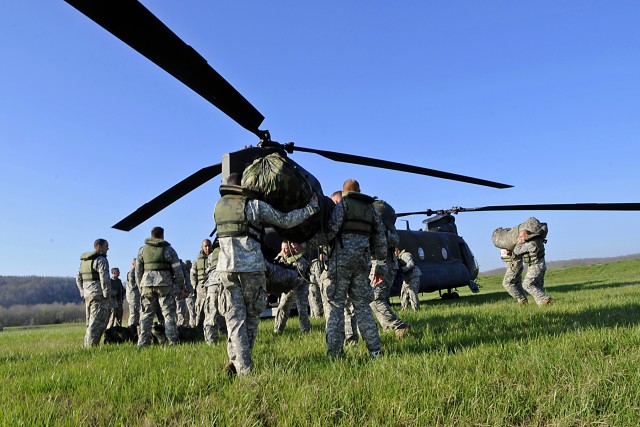
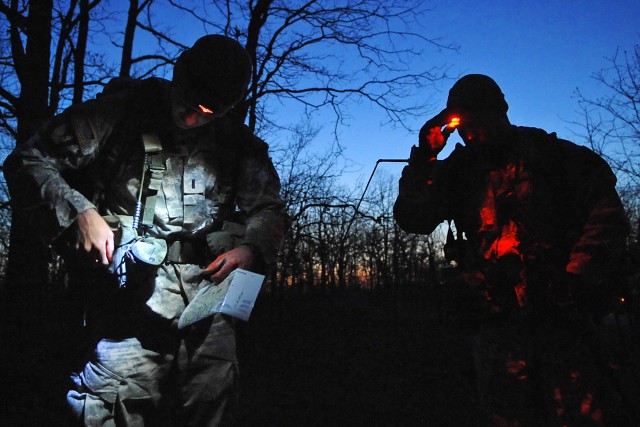

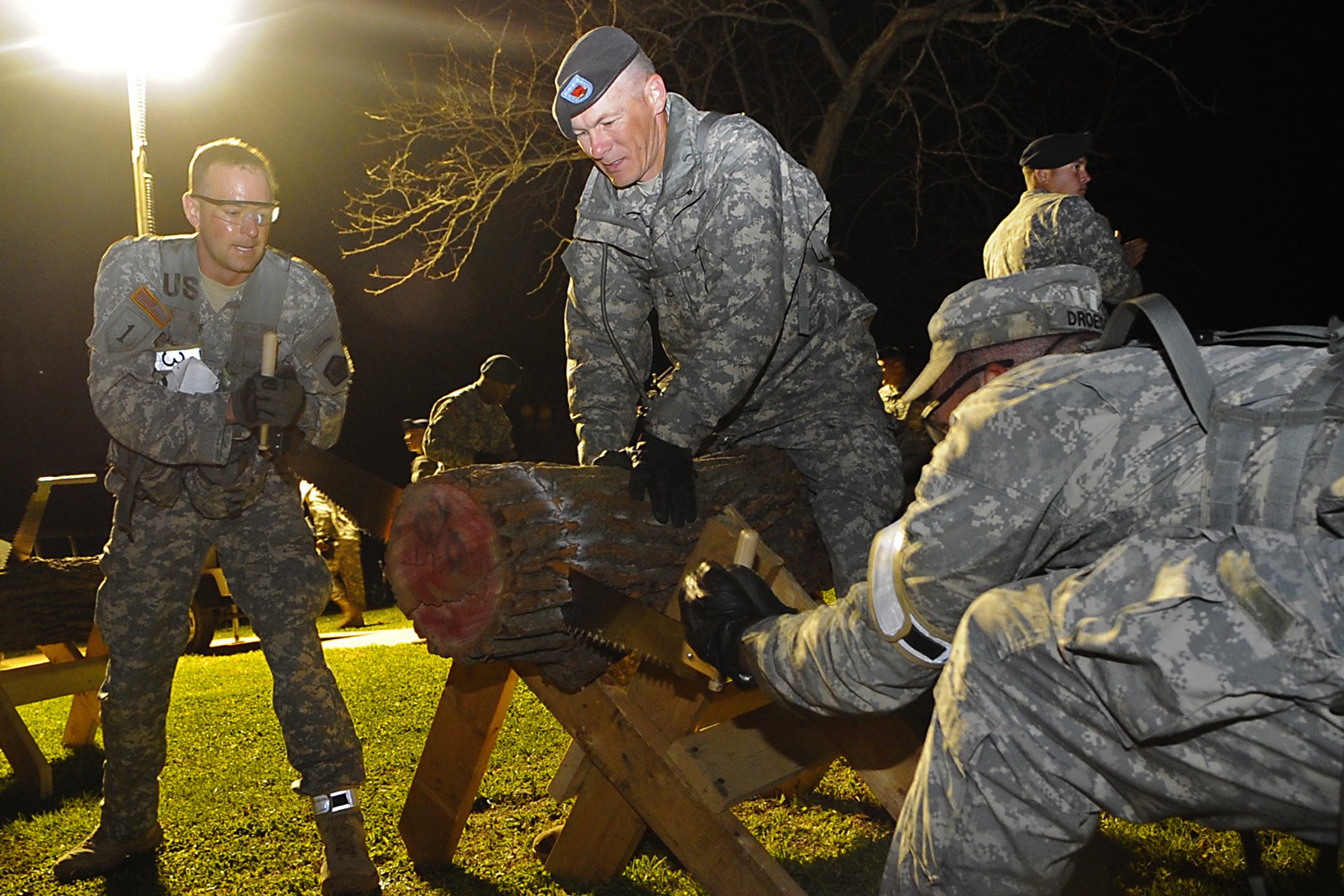
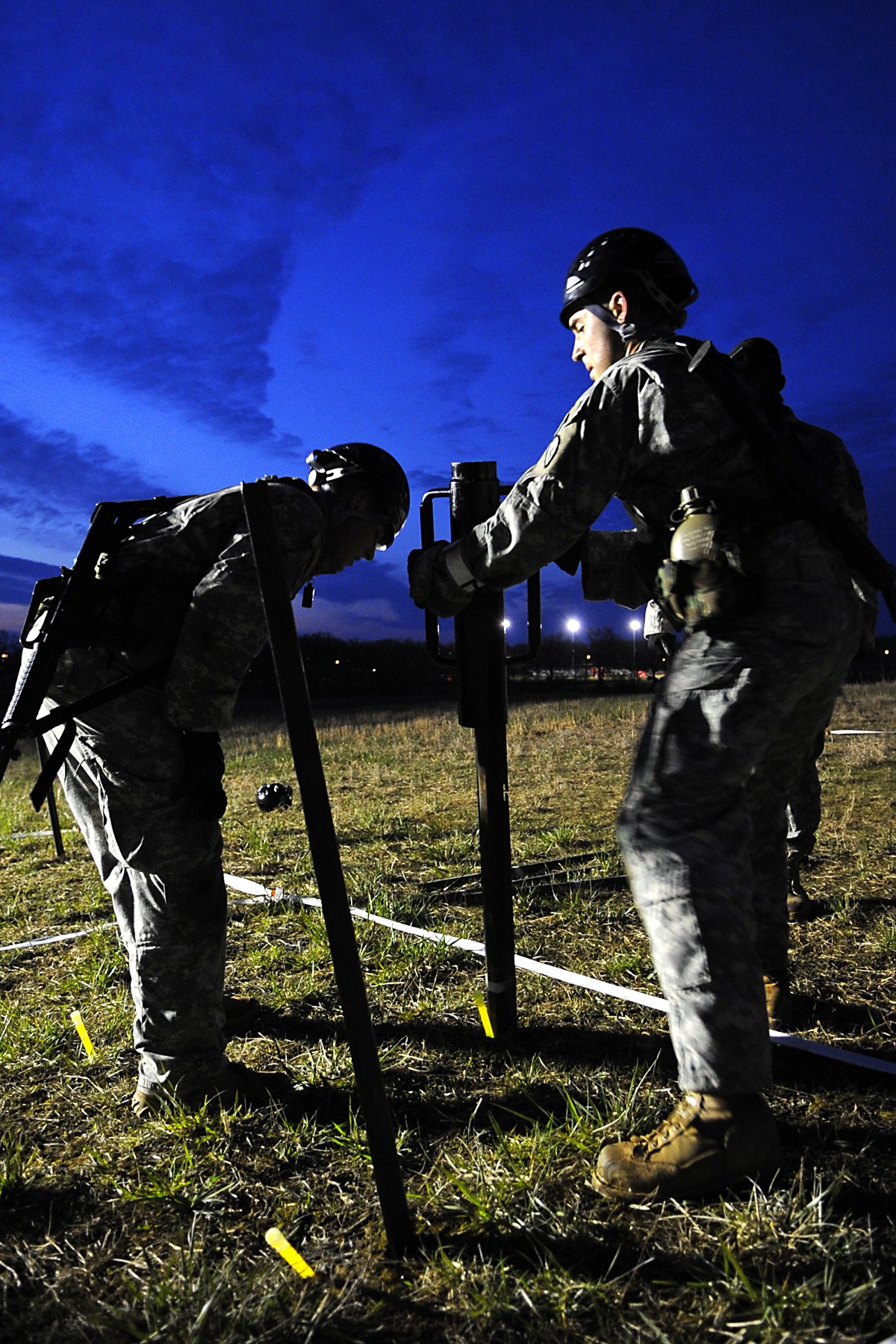
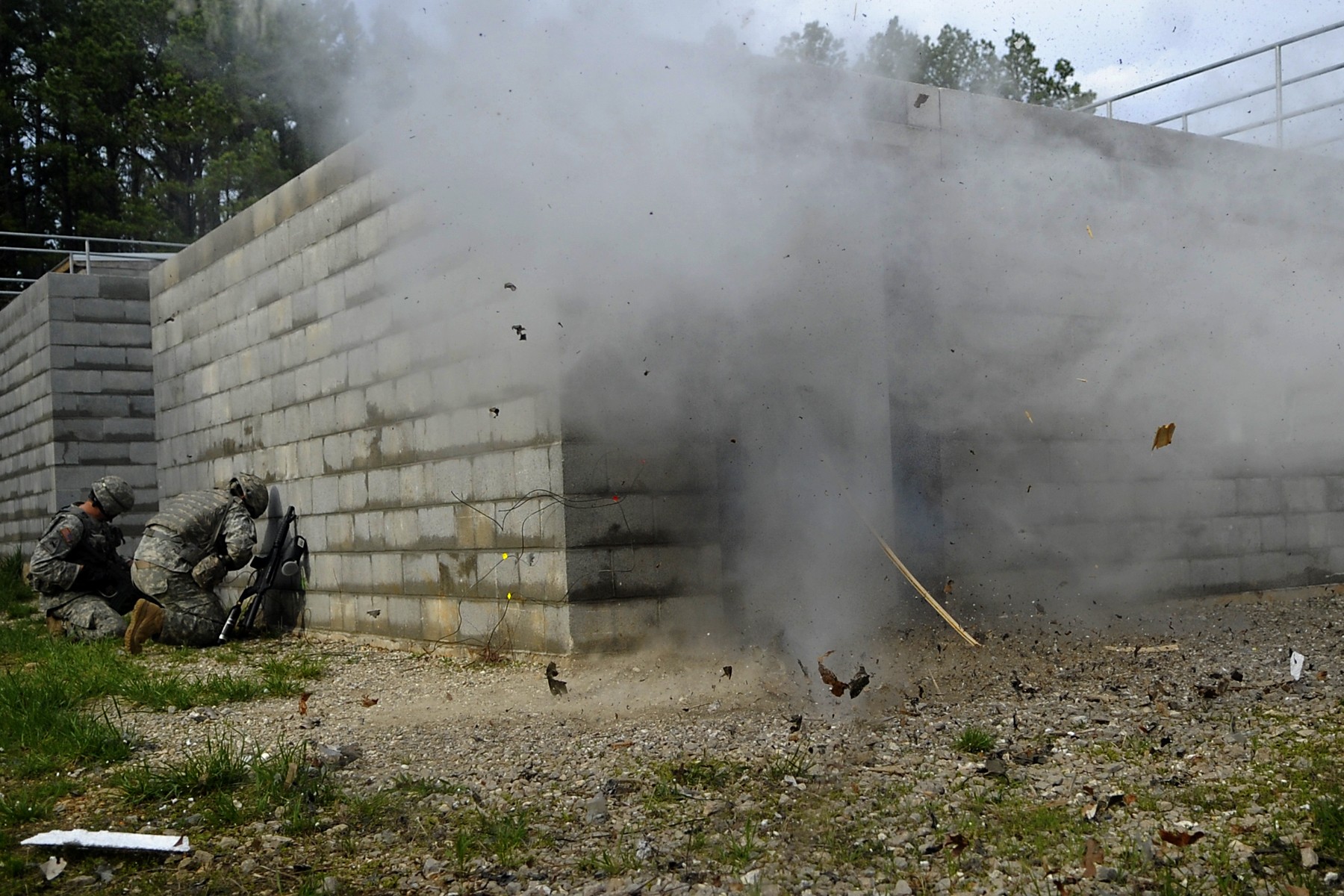
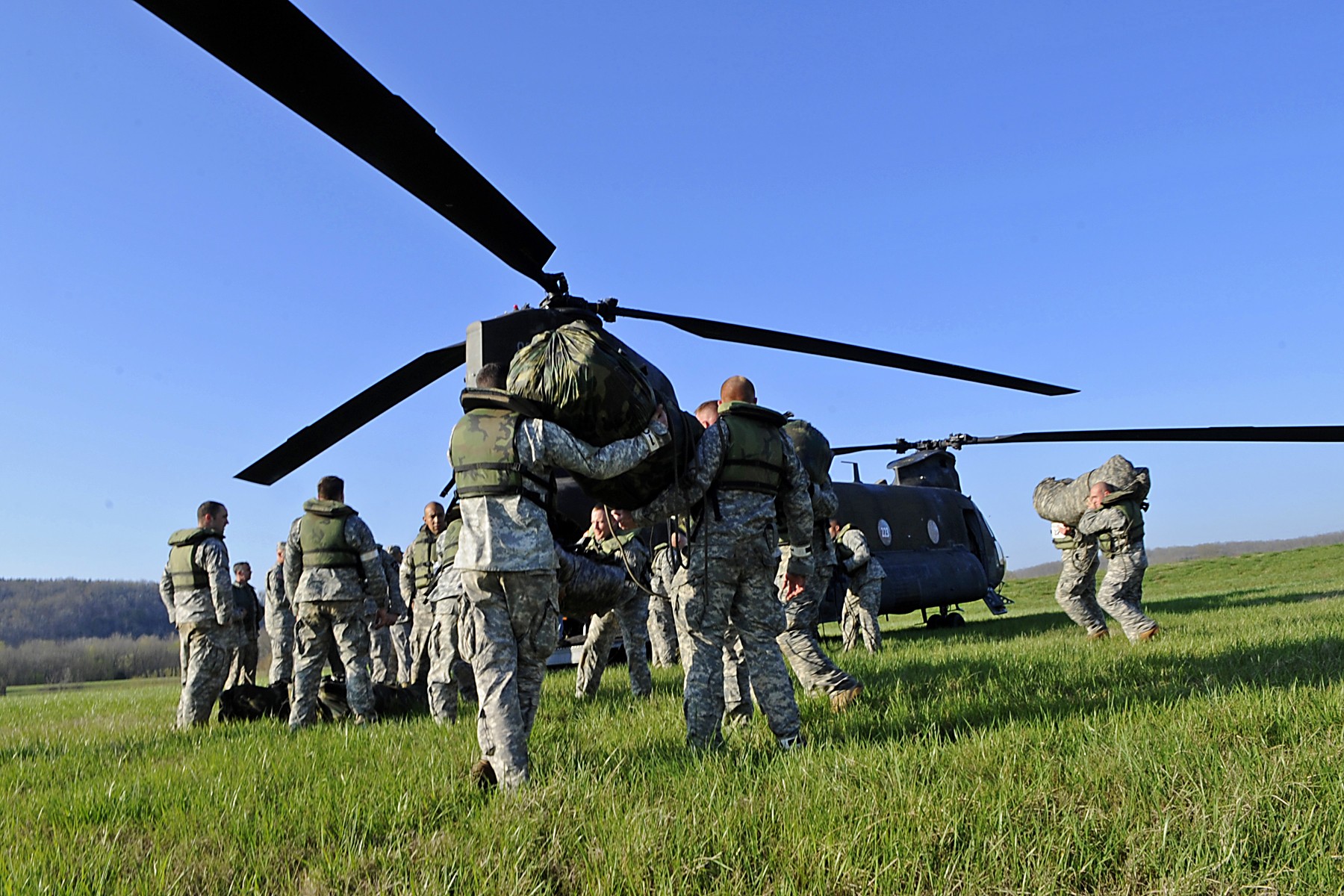
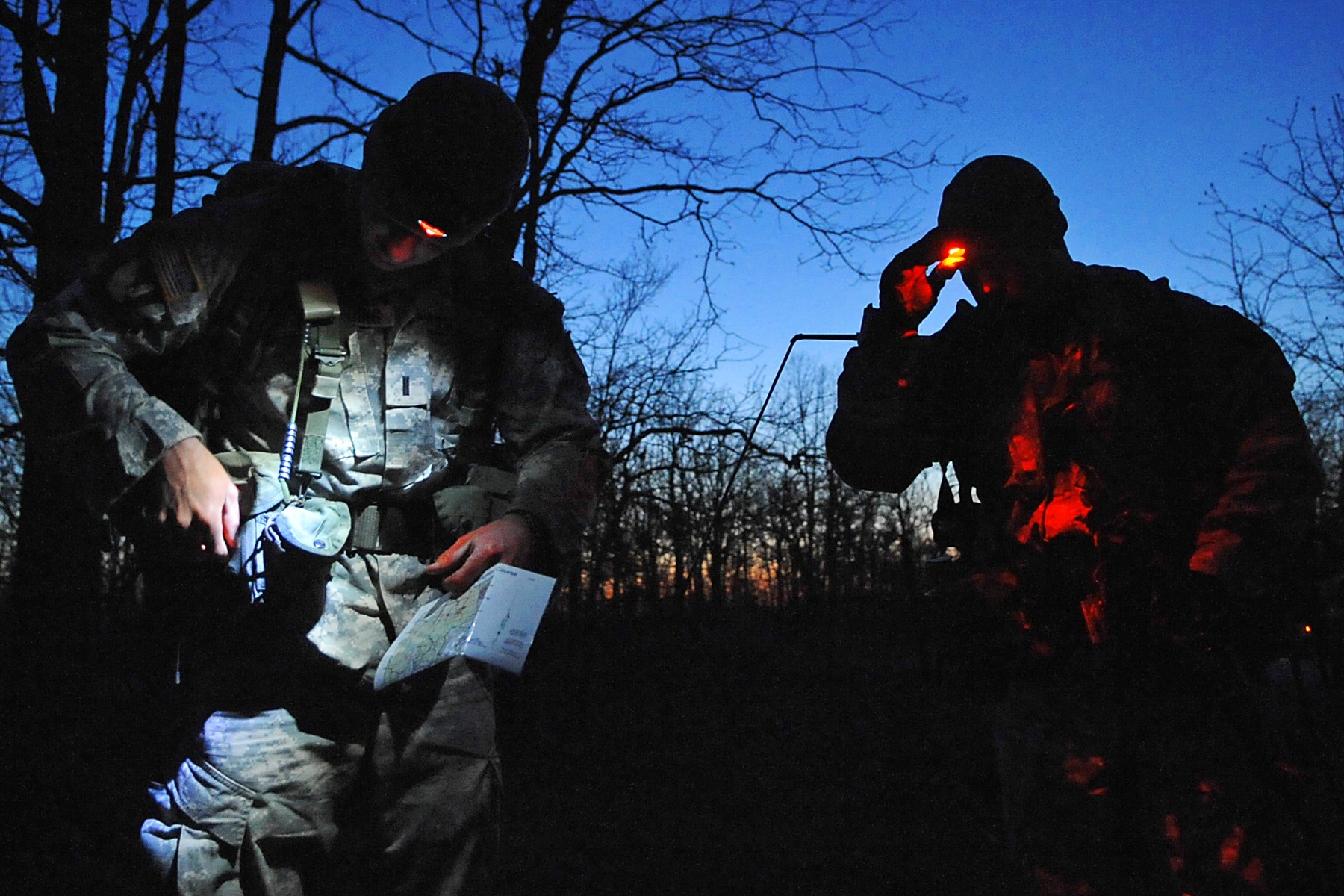
Social Sharing